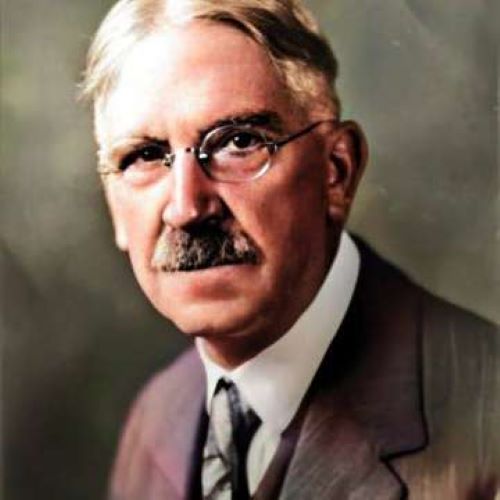
Dewey’s ideas continue to shape modern education, encouraging educators to create dynamic learning environments that foster curiosity, critical thinking, and lifelong learning skills
SHOUKAT LOHAR
John Dewey, an influential American philosopher, psychologist, and educational reformer, made significant contributions to the field of education. One of his most notable theories is constructivism, which revolutionized the way we perceive learning and understanding. This discussion explores the life and works of John Dewey, delving into his theory of constructivism and its impact on education.
Biography of John Dewey
John Dewey, born in 1859 in Burlington, Vermont, was a prominent figure in educational philosophy. He taught at various universities and authored numerous books on education, psychology, and philosophy. His progressive ideas challenged traditional educational practices and emphasized the importance of active learning, democracy, and experience-based education.
The Foundation of Constructivism
Dewey’s constructivist theory emerged as a response to the prevailing view of education as a passive process. According to Dewey, learners actively construct knowledge by engaging in meaningful experiences. He believed that education should be centered on the learner, considering their prior knowledge, interests, and experiences.
 Key Principles of Dewey’s Constructivism
Key Principles of Dewey’s Constructivism
- Experiential Learning: Dewey emphasized the importance of learning through experience. He believed that meaningful experiences, where students actively participate, reflect, and apply concepts, lead to deep understanding and knowledge construction.
- Problem-Solving and Inquiry: Dewey advocated for problem-solving and inquiry-based learning approaches. By presenting students with real-world problems, educators foster critical thinking, exploration, and creativity. This approach enables students to actively construct knowledge and develop problem-solving skills.
- Social Interaction: Dewey recognized the significance of social interaction in learning. Collaborative activities, discussions, and group projects provide opportunities for students to share ideas, negotiate meaning, and build knowledge collectively. By engaging in social interactions, learners develop communication skills, empathy, and a deeper understanding of diverse perspectives.
- Continuity and Connection: Dewey emphasized the importance of connecting new knowledge to prior experiences and previously acquired knowledge. Learning should be a continuous process where new information is integrated into existing mental frameworks, fostering meaningful connections and deeper understanding.
The Role of the Educator
According to Dewey, educators play a crucial role in facilitating constructivist learning. They should act as facilitators, guiding students through the learning process, rather than being mere transmitters of information. Educators create learning environments that promote active engagement, critical thinking, and collaboration. They also provide feedback, encourage reflection, and help students make connections between their experiences and new knowledge.
Impact on Education
Dewey’s constructivist theory has had a profound impact on education worldwide. Many educational approaches, such as project-based learning, inquiry-based learning, and experiential learning, are rooted in his principles. By shifting the focus from rote memorization to active engagement, Dewey’s constructivism promotes lifelong learning, critical thinking, and problem-solving skills. It encourages students to become independent thinkers, capable of navigating an ever-changing world.
Conclusion
John Dewey’s theory of constructivism has significantly influenced educational practices and pedagogy. By emphasizing active learning, problem-solving, and social interaction, Dewey empowered learners to construct knowledge and meaning through their experiences. His ideas continue to shape modern education, encouraging educators to create dynamic learning environments that foster curiosity, critical thinking, and lifelong learning skills.
____________
 Shoukat Lohar is Assistant professor in English at Mehran University of Engineering and Technology Jamshoro. He can be reached at Shoukat.ali@faculty.muet.edu.pk
Shoukat Lohar is Assistant professor in English at Mehran University of Engineering and Technology Jamshoro. He can be reached at Shoukat.ali@faculty.muet.edu.pk